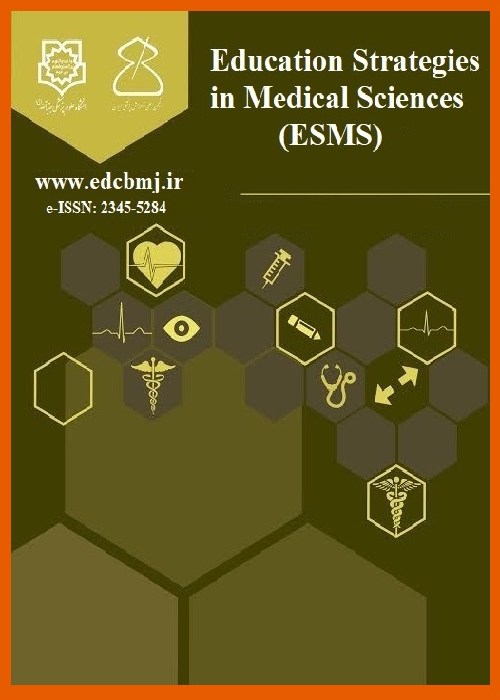Role of Personality Traits, Learning Styles and Metacognition in Predicting Critical Thinking of Undergraduate Students
Author(s):
Abstract:
Aims
Psychologists and educators are trying to understand the differences between people with the power of critical thinking and without it. According to two-factor theory, critical thinking is a result of the interaction between cognitive abilities and personality dispositions. The aim of this study was to investigate the role of personality traits, learning styles and metacognition in predicting critical thinking. Instrument & Methods
In this descriptive correlative study, 240 students (130 girls and 110 boys) of Ahvaz Shahid Chamran University were selected by multi-stage random sampling method. The instruments for collecting data were NEO Five-Factor Inventory, learning style inventory of Kolb (LSI), metacognitive assessment inventory (MAI) of Schraw & Dennison (1994) and California Critical Thinking Skills Test (CCTST). The data were analyzed using Pearson correlation coefficient, stepwise regression analysis and Canonical correlation analysis. Findings
Openness to experiment (b=0.41), conscientiousness (b=0.28), abstract conceptualization (b=0.39), active experimentation (b=0.22), reflective observation (b=0.12), knowledge of cognition (b=0.47) and regulation of cognition (b=0.29) were effective in predicting critical thinking. Openness to experiment and conscientiousness (r2=0.25), active experimentation, abstract conceptualization and reflective observation learning styles (r2=0.21) and knowledge and regulation of cognition metacognitions (r2=0.3) had an important role in explaining critical thinking. The linear combination of critical thinking skills (evaluation, analysis, inference) was predictable by a linear combination of dispositional-cognitive factors (openness, conscientiousness, abstract conceptualization, active experimentation, knowledge of cognition and regulation of cognition). Conclusion
Personality traits, learning styles and metacognition, as dispositional-cognitive factors, play a significant role in student's critical thinking.Keywords:
Language:
Persian
Published:
Iranian Bimonthly of Education Strategies In Medical Sciences, Volume:8 Issue: 1, 2015
Pages:
59 to 67
magiran.com/p1407936
دانلود و مطالعه متن این مقاله با یکی از روشهای زیر امکان پذیر است:
اشتراک شخصی
با عضویت و پرداخت آنلاین حق اشتراک یکساله به مبلغ 1,390,000ريال میتوانید 70 عنوان مطلب دانلود کنید!
اشتراک سازمانی
به کتابخانه دانشگاه یا محل کار خود پیشنهاد کنید تا اشتراک سازمانی این پایگاه را برای دسترسی نامحدود همه کاربران به متن مطالب تهیه نمایند!
توجه!
- حق عضویت دریافتی صرف حمایت از نشریات عضو و نگهداری، تکمیل و توسعه مگیران میشود.
- پرداخت حق اشتراک و دانلود مقالات اجازه بازنشر آن در سایر رسانههای چاپی و دیجیتال را به کاربر نمیدهد.
In order to view content subscription is required
Personal subscription
Subscribe magiran.com for 70 € euros via PayPal and download 70 articles during a year.
Organization subscription
Please contact us to subscribe your university or library for unlimited access!



